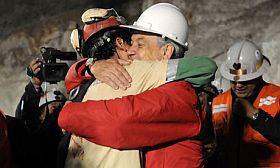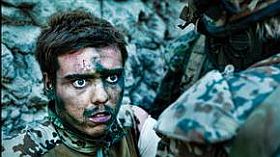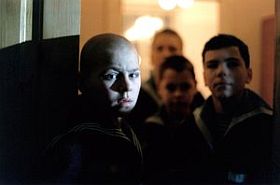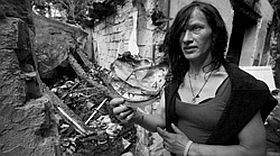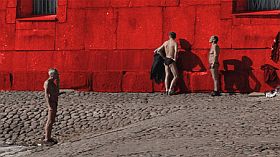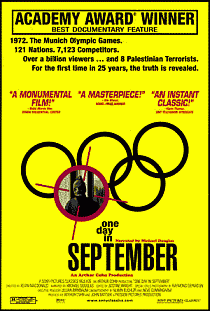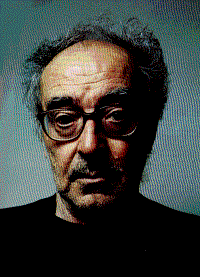


Ally Derks: Screaming Out for Culture
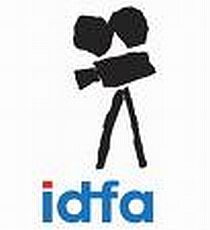
Ally Derks, director of the idfa festival, held a strong speech at the opening of the festival Wednesday night. Here is the text of the strong cultural political appeal:
Dear friends, tonight we are launching the 23rd edition of IDFA with the world premiere of Leonard Retel Helmrich’s magnificent film, Stand van de Sterren (The Position Among the Stars). But before we enjoy it, I want to take a few minutes to reflect on the films in the festival – and the current climate under which they are being made. This year, we received over 3000 entries from 100 different countries. We have selected 300 films to stimulate your thought and pleasure. Many films in the program are working for a world where truth and fact can overcome official lies and corporate greed. Others take on climate change and help us to understand it. There are films that work for an equal world, without sexism or economic injustice. Others take up the sword of action against the enemies of cynicism and apathy.
Many films are personal, connecting us with a world full of different cultures. They bridge the gap of “The Other”. They offer us a different view of difference. There are creative films that transform the world with beauty, aesthetics and the hope found in art. They experiment with form. They consider documentary as a life form. They transform facts into the art of information. The art of storytelling.
In truth, documentary is an artform. But alarmingly, in many countries of the world, the arts and cultural industries are under grave threat. Documentary production and public service broadcasting are at risk. Compounded by economic recession, and a lack of
official vision, cultural funding everywhere faces severe budget cuts. Admittedly, in The Netherlands, we are a little luckier, but we are still not immune to economic tidal waves. With the diversity of all our different broadcasters, with their different points of view, our system is still one of the best in the world. But we will have to work together to keep it that way.
Elsewhere, cultural workers and organizations are not so lucky. For example in Paris, the Minister of Culture has ordered big cutbacks in culture; the Louvre and the Centre Pompidou will be forced to give up exhibitions. In Spain, the head of the national library has resigned. In England, the Conservative coalition shut down the extremely important UK Film Council. In Denmark, the pressures on the economy and fundamentalism have walked hand in hand with censorship. And in Germany, 12 billion euros will be cut from culture over the next four years.
Cost-chopping politicians see culture as a soft target. They think that artists are too poor and disorganized to fight back. Preaching to their core group of supporters, politicians attempt to drive a wedge between artists and the public. The results are catastrophic. The dismemberment of culture goes to the heart of a nation’s identity. It drains a nation’s soul. And it has a significant impact on unemployment.
The response has not been silent. In Britain, massive petition campaigns are being organized. In Canada, artists helped convince the public to change the course of an election. In Italy this summer, a million people were in the streets protesting Berlusconi’s cutbacks. Despite his total control of private media, resistance was very organized. The famous opera house in Milan went dark in solidarity. Last week, across Italy, there was a mobilization never seen before. More than 1000 cultural organizations participated. Famous institutions closed down for the day. They drew attention to the destructive effects that arbitrary budget manoeuvres are having on culture.
Now, in these tough times, I think that we can all agree on the need for some financial belt-tightening. In rational and proportional ways. But, in this country, the arts budget faces a 24% cut. Some of Holland’s most precious cultural, musical and performing arts institutions are being brutally devastated, demolished and dismantled. Orchestras will shut down. Public Television may lose one third of its assigned channels. And as a special Christmas ‘bonus’ to the people of Holland from our enlightened coalition, the tax on performances will go up from six to 19%.
Both big institutions and small companies are affected. Currently, the government budget for all arts and culture is about equal to the cost of constructing a few kilometers of a Dutch motorway. Or the cost of one new Joint Strike fighter for the Defense Department. But, our government says the arts and culture are “unfortunately” not a priority.
Those who would cut arts funding so dramatically, should be reminded that culture is the measure of a civil society. Without Art there is no nation. Art is not just opera, or ballet or high-minded experimental theatre. Art is not just an intellectual enterprise for the privileged few.
Audiences become better citizens by engaging with art and culture. We add our own ideas and emotions to an artist’s interpretation of the world. Art is the music of the street. It resides in the architecture that surrounded you as you walked to the theatre tonight. Art is in the popular imagination; in novels, fashion and design.
Art, too, can be found on television, or in the art of relationships; in the language, stories and culture of everyday life. It can be found in the documentary we will see tonight. Art is life. We are all born with a creative fire within us. Sometimes it is drummed out of us. Other times it is nurtured.
So what can we do about these cutbacks? Well, I am reminded that Italy shares some important affinities with Holland. So, as a gesture of this connection, and as a symbol of an international movement, I will put on this little yellow ribbon – which is used by the Italian awareness campaign around cuts to culture.
Now, I know there is a cause for every colour of ribbon, and a ribbon for every cause, but I think you’ll agree that saving cultural is worth it….
We, as Holland’s artistic and cultural communities will not be silent. We can take personal and collective action. As the great Dutch philosopher Spinoza once observed: “The more a government strives to curtail freedom of speech, the more obstinately it is resisted.”
On Saturday November 20th, there will be a nation-wide Screaming Out for Culture. In Amsterdam, there will be events on the Leidseplein at 4pm. On Monday, at the Heineken Music Hall, the nation’s artists will speak out. We invite you all to scream out as a diverse choir of diverse voices.
Perhaps the 3000 Dutch and International Guests gathering here at IDFA will also find ways to act in solidarity. I suggest that we here at IDFA also take up a yellow ribbon campaign as a simple, symbolic gesture. Later tonight at the reception, and throughout the week in the IDFA tent on Rembrandt Square and in our theatres, we will offer everyone the opportunity to express their creativity. We’ll supply the yellow ribbon, pins and scissors so you can design and write your own messages about our common concern for culture.
But it must be emphasized that still I feel that the best way to reclaim culture – and to protect it for the long-term – is to encourage education and sustained public pressure. In most countries, I am convinced that popular will side with artists and the creative industries.
Now, wouldn’t it be wonderful if the hundreds of thousands of people expected to attend IDFA – both on-line and on-site, would spread the yellow ribbon idea through the air? Like little yellow grains of pollen floating in the wind, germinating creativity everywhere. A ripple of actions radiating out from this big IDFA pond of documentary. By word of mouth and face to interface. It would be a shot – and a shout, heard ‘round the world.
As the Dutch public acts to preserve our culture, let us join them wherever we can. Let us remind everyone that the art of real life is reflected in the art of documentary. And so, in conclusion, I believe that IDFA 2010 offers us many visions which point to the idea of a better world. It is a world with hope and promise at its centre. A world where free expression is possible. Where there are no economic barriers to making movies. I hope you’ll find that the documentaries of IDFA 2010 may take you to a place where art and culture will finally, and properly – be valued. Thank you very much.
